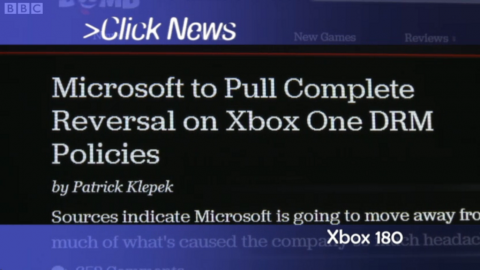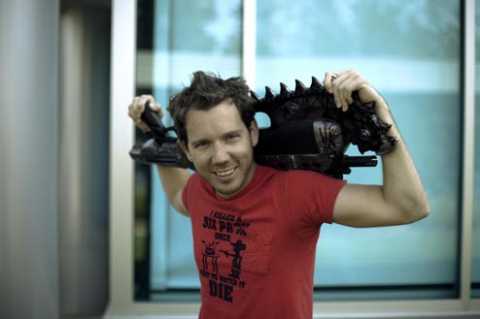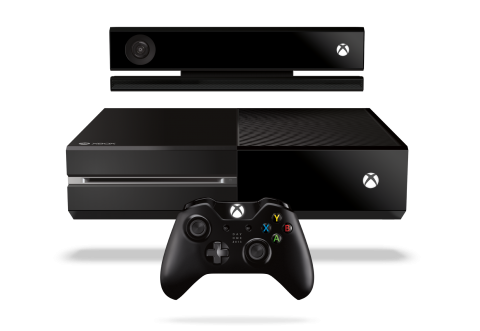Corporations are notoriously slow creatures. That slowness generally stands in direct proportion to the size of the corporation itself. The bigger the beast, the more people, bureaucratic processes, and legal wrangling every single decision must be pumped through before any kind of minute decision can be made. It's why I never expect much when fan outcry arises toward the various monolithic companies that make up the video game industry. Especially in the case of a behemoth like Microsoft, whose Xbox One DRM policies became the subject of much derision over the course of the last month. Here was a company that was laying out its carefully built plans for a new console, its first in eight years. This is unquestionably a huge undertaking, involving years of research and development, and considerable capital. Yes, people reacted poorly when Microsoft announced that it would not allow traditional used game sales on the system, and would require online check-ins every 24 hours in order to even play offline games. Seemingly, in its mind, the potential riling up of DRM-weary consumers was worth the risk given the potential long-term benefits of the tech.

Until, of course, it very suddenly wasn't.
To say Microsoft's reversal of those aforementioned policies this week was a surprise would be a gross understatement. Nobody saw this coming. Not the developers we talked to at E3, not the various press people commenting following the show, not anyone. Even if you believed Microsoft could be worn down at some point in the future, I hardly expect you could have foreseen them making such a jarring about-face less than a week after E3's conclusion.
This is not how companies typically react to fan or media outcry. Usually there's a lot more quiet hand-wringing as they attempt to adjust messaging, or even just flat indifference to the whole thing. Which isn't to say game companies never listen to fans, but this kind of complete reversal on such a seemingly fundamental policy that had just been announced is practically unheard of. All that research, all that preparation, all that money, essentially tossed off in the hopes that fan response would turn back in Microsoft's favor.
Yes, Microsoft has been presenting these changes as very much the result of "fan feedback," that nebulous term that could refer to the myriad angry message board and comment thread postings, the consistent feed of backlash from the games press, or even less public factors, like pre-order sales. For my money, I tend to lean on that latter one. In my experience, nothing sets a game company's ass aflame quite like soft pre-order numbers. We don't know exactly what pre-orders look like for either the Xbox One or the PlayStation 4, but there's enough anecdotal info going around to suggest that Sony's E3 press conference, with its promises of no new restrictive DRM policies and a $100 cheaper price tag, brought the company terrific early results.
If you're Microsoft, I have a hard time believing you scrap such a noteworthy chunk of your system's architecture just because a lot of angry people on the Internet were angry. Companies are trained to learn that these kinds of complaints are typically more indicative of a vocal minority. But actual, tangible sales? That's another story entirely. If people aren't pre-ordering your console to the degree that you're expecting, that's when you would typically see a company leap into action to affect change. A leap this high and this fast tells me that something was very seriously wrong in Microsoft land, and that this was not just some play to appease an upset audience, but a desperate attempt at total course correction in the face of what I can only assume they foresaw as an impending doom scenario.
Even more intriguing than Microsoft's immediate about-face was the reaction that followed. Unsurprisingly, those who had spent the last 20-some-odd days deriding the Xbox One's DRM system were generally quite thrilled. But almost immediately after the announcement hit, another side of the argument piped up. While there had been some vocal supporters of Microsoft's new DRM--typically, those who believed that such a system would be the impetus to put consoles more on par with Steam's currently (mostly) beloved digital library system--their voices were largely drowned out by people who weren't into these restrictions one bit.

So now, this previously shouted down group had reason to pipe up even louder, as the opposition quieted down. They were most certainly being fueled by numerous developers, who came out in dismay over Microsoft changing a policy that they believed would save the industry from eventual collapse. A predominantly dire attitude was taken on by prominent figures like Cliff Bleszinski and Lee Perry as they spoke of doomsaying numbers that they proclaimed showed how bad things have gotten in top-tier game development. The thing is, they're not wrong. The current model is deeply in the red, with not a lot of return on investment for increasingly bloated game budgets. That bloat, as most developers will tell you, is the direct result of the staffing and resource requirements inherent to crafting "top quality experiences" in the kinds of timetables major publishers require. Games that sell millions of copies are often still "disappointments," because they're not hitting the kinds of targets the publishers had banked on. Whether those expectations were ever realistic to begin with is, sadly, not often up for debate, since usefully precise data on game budgets and sales numbers is still generally kept away from the public view.
But as Chris Kohler notes in a piece written Friday, this isn't just an either/or argument. It's not literally: "We get rid of used games, or top quality video games go away." Nothing so binary has ever existed in this business. Companies have failed and succeeded in widely varying forms over the course of the last few decades, and how the industry might reshape itself in the face of unsustainable costs is very much an unknown. Cliff seems convinced that not having these new digital licensing tools would guarantee the status quo of tons of DLC, microtransactions, and the return of online passes, inevitably leading to some kind of eventual cataclysm. I don't think we really know that to be our only possible future yet.
Removed from the apocalyptic foretellings, some people were just mad because the various sharing features built into the system sounded pretty great. The family sharing feature, which would have allowed you to share any game you owned with up to 10 family members on any Xbox One, sounded really ideal. While some doubt over the veracity of that feature's description popped up later last week, those claims--that the system would only allow family members to play shared games for up to 60 minutes at a time, before being told to buy the full product--seem to have been debunked by various Microsoft men via Twitter.
And then there was the ability to access your entire games library digitally, even if you bought a physical copy originally. Losing that one does suck, no question, but if someone really is invested in the current vision of an all-digital future, Microsoft says they'll still have every game published on the system available day-and-date digitally alongside the disc-based copies. Access might not be quite as broad as it was before, but it still allows for a notable upgrade over Microsoft's current system, where disc-based games tend to lead their digital versions by quite a margin.
So certainly, there is reason to lament some of the losses in the wake of Microsoft's change, but such lament comes with a level of faith that a lot of consumers evidently weren't willing to put in Microsoft's $500 machine as it previously stood. Now, sans these restrictions, it seems that Xbox One preorders have risen on various retail sites. Granted, the PS4 still had a strong week-long lead of positive press driving it into Amazon's top sellers list, and with many of those pre-orders put in, we're now seeing those who held out on Microsoft meeting its about face in kind. Again, actual numbers for these sorts of things we won't know about until somebody decides a sufficient benchmark has been reached to put out a glowing press release, but it does seem like Microsoft has gotten a shot in the arm here, if nothing else.

It's also really only put-off what may still yet be an inevitable all-digital future, as the New York Times noted this weekend. Many seem to think that physical media isn't really long for this world. Even if Microsoft is removing its DRM restrictions on the Xbox One, there's no reason to believe they couldn't just implement that stuff again whenever it feels the market dictates. We are most certainly progressing toward a heavily digital games market, as indie games and day-one digital releases have become increasingly normal. It's been a slow push, and not everyone is there yet. The bandwidth isn't there for everyone, nor is the affordable storage space. But if you look at where we are now compared with, say, five years ago, the digital market has expanded by leaps and bounds. In another few years, the used market may begin to dry up all by its lonesome, with no forceful nudging from console makers. All those features Microsoft was talking about could easily be plugged back in, and at a time when the market is actually prepared for this kind of shift. And isn't that how it ought to be, anyway? The consumers dictating the fate of the used games market, instead of the game companies dictating it to us?
Whether or not this gambit pays off in the end, on some level, you just have to admire the moxie of it all. Sony drilled Microsoft at E3, and managed to rally the core gaming audience behind them in a way that a single console maker hasn't been able to in ages. Where Microsoft looked out-of-touch and indifferent, Sony looked self-aware and clever, and clearly were able to parlay that into strong early numbers. In making this change so abruptly, Microsoft may have dimmed Sony's E3 afterglow a bit, and brought itself back into the race. We have ourselves a ballgame again folks, and when two companies compete with this kind of fierceness, it's we, the consumers, who most often win in the end.
278 Comments